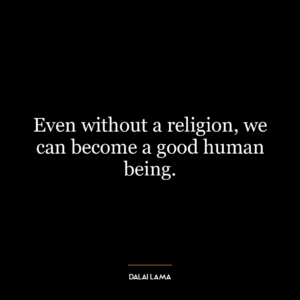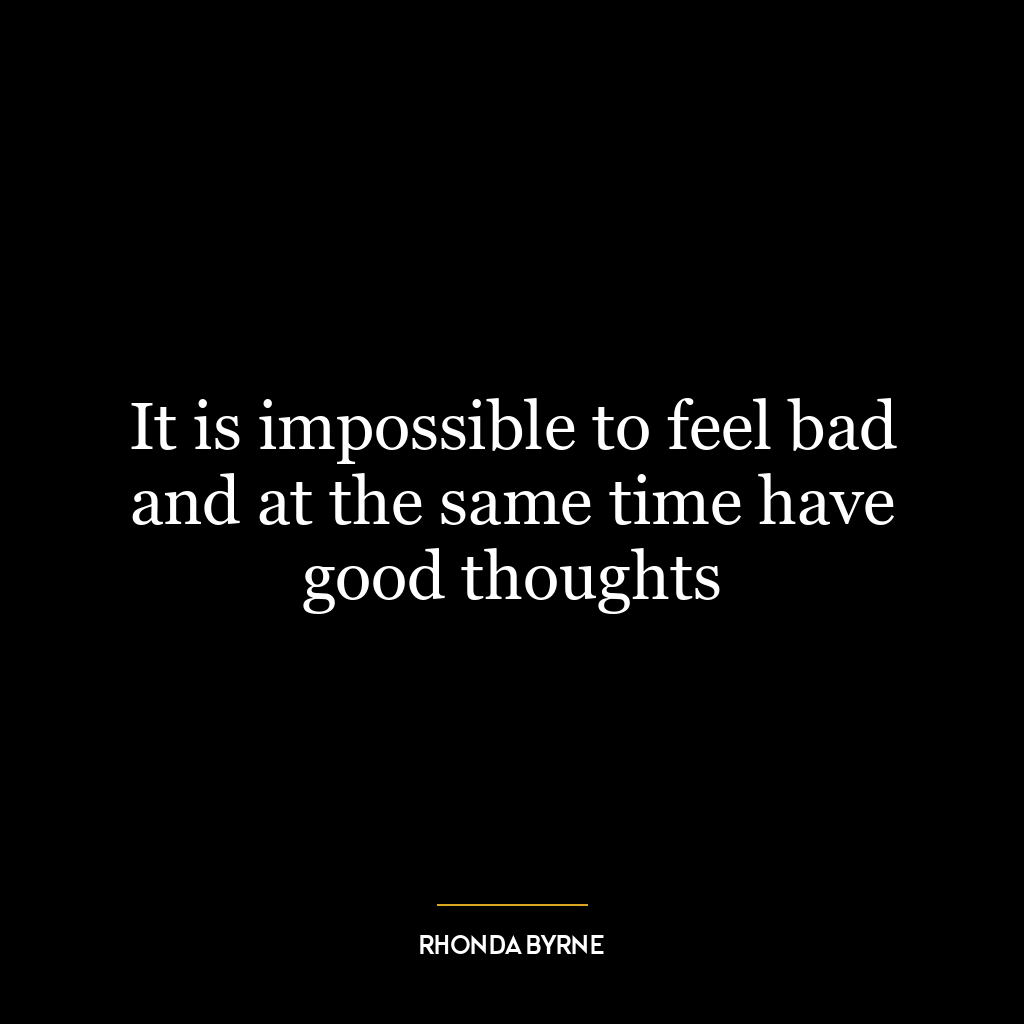When you are warm-hearted, there is no room for anger, jealousy or insecurity.
This quote suggests that when one cultivates a warm-hearted disposition, it leaves no room for negative emotions such as anger, jealousy, or insecurity. Essentially, being warm-hearted means being kind, empathetic, and loving. This state of being naturally dissolves negative emotions because the energy and focus required to maintain a warm-hearted demeanor leaves no space for negativity.
The concept of being warm-hearted can be likened to a garden. If you cultivate good plants (positive emotions), water them regularly, and give them enough sunlight, they will grow and flourish, leaving no room for weeds (negative emotions) to sprout and grow.
Applying this idea to personal development, it suggests that we should focus on nurturing positive emotions and attitudes. This doesn’t mean suppressing negative emotions, but instead acknowledging them and then consciously choosing to focus on the positive. This can be done through various ways such as practicing gratitude, meditation, or acts of kindness.
In today’s world, where negativity often seems to dominate, whether in the news or on social media, this quote is a reminder to choose positivity and kindness. It encourages us to create a personal space – mentally and emotionally – that is filled with warmth and positivity, making it inhospitable for negative emotions. This can contribute to personal well-being, healthier relationships, and a more empathetic society.
Moreover, in the context of conflict resolution, whether on a personal or global scale, approaching situations with a warm heart – that is, with understanding, empathy, and a desire for mutual benefit – can help to dissolve anger and insecurity, paving the way for peaceful and constructive solutions.
Overall, this quote emphasizes the power of positivity and the importance of cultivating a warm-hearted disposition for personal growth and societal harmony.












